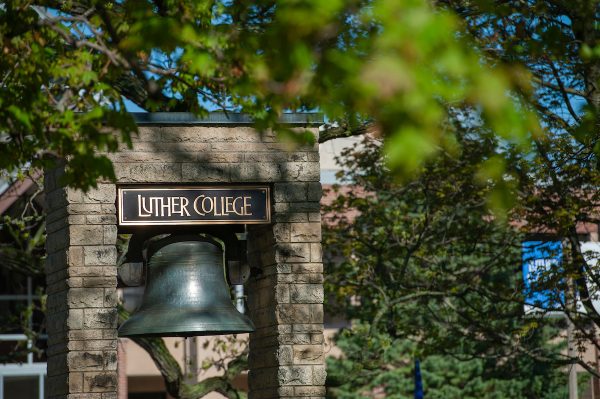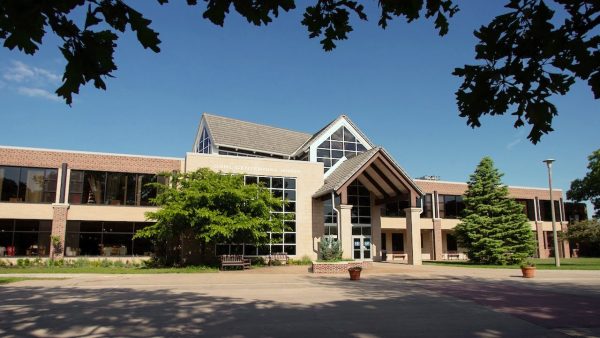Luther College adopts new investment strategy
As the Luther College endowment quickly approaches the landmark sum of $200 million for the first time ever, the college is considering ways to incorporate the environmental and social goals of the college into its investment strategies. The growth of the endowment will allow the Board of Regents at Luther College to become more ethical in the future.
The Board of Regents has been tasked with maintaining and growing the endowment in order to ensure the future of the institution, and are now reflecting on what corporations they invest in to better integrate environmental, social, and governmental factors. These considerations are taken into account when deciding how sustainable and socially responsible an investment is for an institution to make.
In order to make Luther College a more sustainable and socially responsible institution, this new investment strategy also included an update to the Endowment Investment Policy Statement of Luther College. This update included new criteria for responsible investing in order to better the college’s sustainable and social image, ensure that the investments made benefit not only the college but the general public, and to keep growing the endowment so that Luther College may continue to educate students.
The Endowment Investment Policy Statement of Luther College was also updated to describe why the new ESG considerations were being implemented, as well as how they would be implemented.
“The importance and recognition of ESG factors continue to progress, while investment options expand as managers develop new products and capabilities,” a press release from the college said. “There are a variety of approaches to responsible investing, with varying levels of focus, activism, and demand on investor resources. The Investment Committee will only pursue responsible investing where they believe it is consistent with their fiduciary obligation and the Portfolio objective to provide for future spending needs while meeting current spending needs.”
Director of Luther’s Center for Sustainable Communities and Professor of Religion Jim Martin-Schramm was also able to communicate the goals of the changes to the Endowment Investment Policy Statement of Luther College by explaining how the main goal of Luther College’s endowment is to financially benefit students, faculty, and staff. Martin-Schramm emphasized how the majority of the endowment has always been dedicated to student scholarships and funding faculty chair positions in order to benefit the Luther community. He also clarified that there are many different perspectives for viewing investing in the stock market, but that Luther College’s goal has always been a good financial return to benefit their students.
“Luther has explored our relationships to the fossil fuel sector, and the Investment Committee of the Board of Regents thinks that we have somewhere between 4-6% of our assets in companies that are directly involved in the fossil fuel sector,” Martin-Schramm said. “The problem is that Luther doesn’t own in ExxonMobil. We don’t own stocks in Peabody Coal. We own big funds that are in different asset classes to diversify our investment portfolio.”
Vice President for Finance and Administration Andrew Bailey agreed that the most important part of Luther College’s endowment is to benefit the Luther Community, but he also highlighted how investing in socially responsible ways can benefit the Luther community in the future. As Luther College is a member of the Association for the Advancement of Sustainability in Higher Education, an organization dedicated to encouraging colleges and universities to be as sustainable as possible, they have a special responsibility to make financial decisions that align with ESG factors.
Bailey was able to go into detail regarding the new plan for the endowment, hoping to convey the strategy in a positive way to the Luther community as a whole.
“Within the college’s overall allocation to inflation protected assets, we replaced a 2% allocation to natural resource stocks with a 2% allocation to global listed infrastructure,” Bailey said. “Within the college’s overall allocation to emerging markets stocks, we now have a 5.5% allocation to a manager that invests in sustainable companies that can have a long-term positive impact in emerging markets. These transactions are representative of the recent changes to Luther’s investment policy statement. Investment transactions continue to be motivated by fiduciary goals, and consideration of environmental, social, and governance factors will impact the managers the investment committee decides to hire.”
Sophomore Representative and Chair of the Leadership Committee for the Luther College Student Senate Landon Hoppe (‘22) was impressed with the recent changes. He also remarked that he felt lucky to be at an institution that cared so much about the future Luther community.
“I think that the new investment program allows Luther to be more diverse in their investing,” Hoppe said. “Luther’s growing endowment shows how committed and successful they have been when providing for their past, current, and future students.”
The new strategies for investing to grow Luther’s endowment are a part of the college’s commitment to service and leadership in the broader world.





